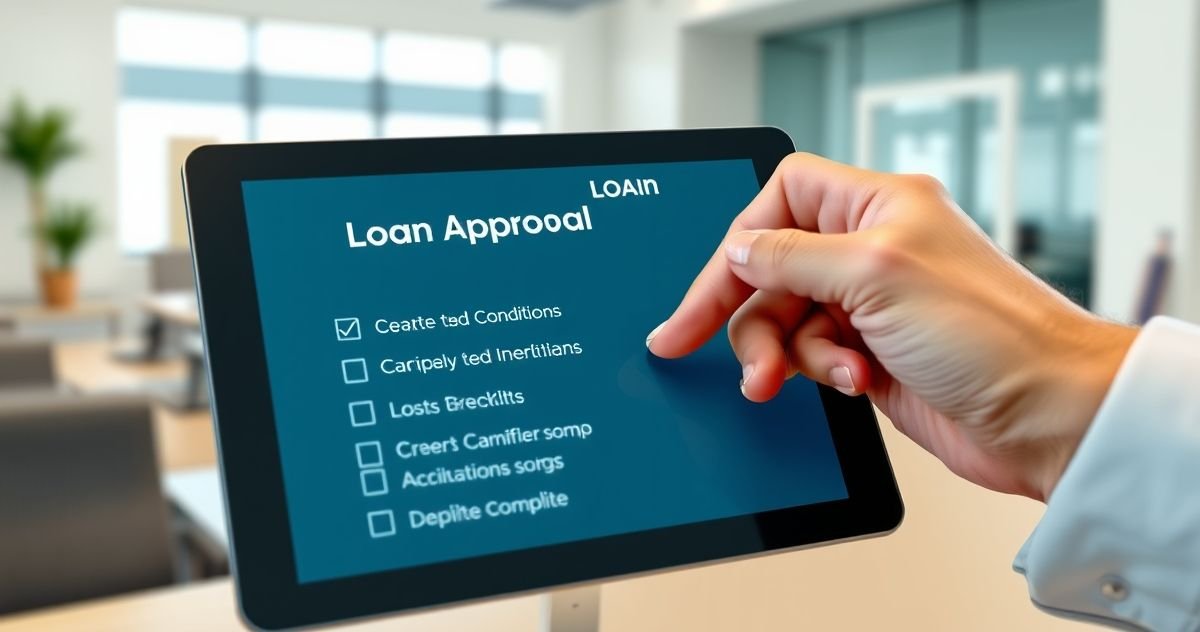Loan approval conditions are specific requirements lenders impose once you’ve received a conditional approval but before your lender releases the funds. These conditions serve as verification steps to confirm the information on your loan application and reduce risk for the lender.
When a loan is “conditionally approved,” it means the lender agrees to fund the loan if you provide additional documentation or complete certain tasks. These tasks are set by the underwriter—the professional who reviews your application in detail to ensure it meets lending standards.
Common loan approval conditions include:
- Income and Employment Verification: Examples are recent pay stubs or a written verification of employment (VOE) to confirm you still earn the income you reported.
- Asset Verification: Updated bank statements showing your funds for down payments or reserves, or a gift letter if family is contributing money.
- Property Documentation (for mortgages): A satisfactory appraisal confirming the home’s value, clear title reports ensuring no liens or ownership issues, and proof of homeowners insurance.
- Credit Verification: Providing a letter of explanation for large deposits or recent credit inquiries, and proof of paid debts if applicable.
Understanding these conditions helps you stay organized and responsive, greatly improving the chances of a smooth closing process. Your loan officer will guide you through gathering the required documents.
Tips for Managing Loan Approval Conditions
- Respond Quickly: Submit documents promptly to avoid closing delays.
- Avoid Major Financial Changes: Don’t change jobs, make large purchases, or open new credit accounts during this stage.
- Stay Organized: Keep all requested documents accessible and well-arranged.
- Ask Questions: If any condition is unclear, your loan officer can explain and assist.
Related Resources
- Learn more about the Mortgage Underwriting process which explains how your loan is reviewed in detail.
- Understand the Loan Origination Process to see the full lifecycle of your loan application.
- For final steps before closing, see Mortgage Pre-approval and what “clear to close” means.
Frequently Asked Questions
Q: What’s the difference between conditional approval and final approval?
A: Conditional approval means your loan is approved pending fulfillment of certain conditions. Final approval, or “clear to close,” means all conditions are met and your loan can be funded.
Q: How long does it take to satisfy these conditions?
A: It varies, usually from a few days to a few weeks, depending on your ability to provide documents and the complexity of the loan.
Q: What if I fail to meet a condition?
A: Contact your loan officer immediately. Solutions might include alternative documentation or renegotiation, especially if appraisal or credit issues arise.
For authoritative guidance on the mortgage closing process and loan conditions, visit the Consumer Financial Protection Bureau’s resource page: CFPB Closing Process.

